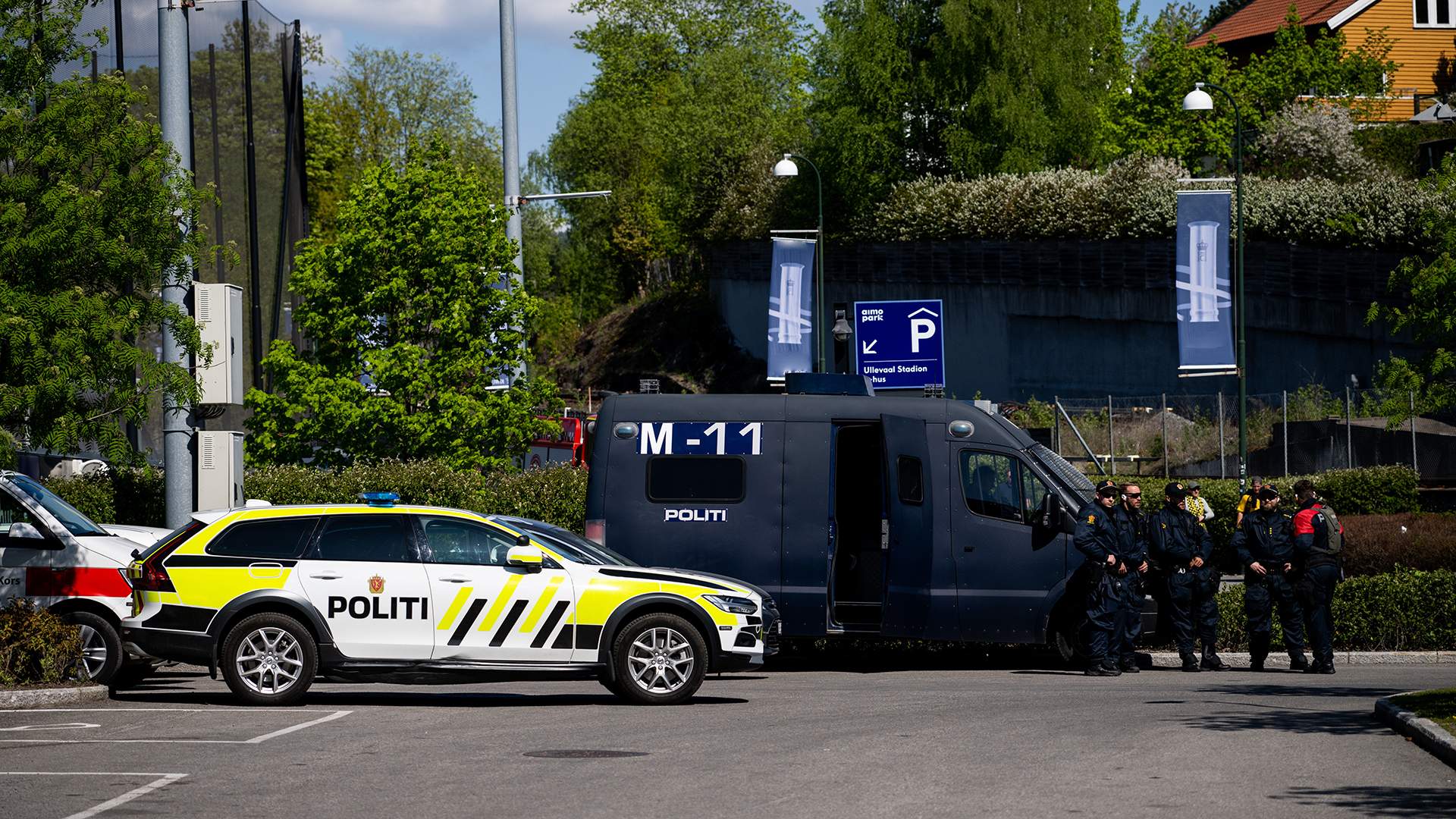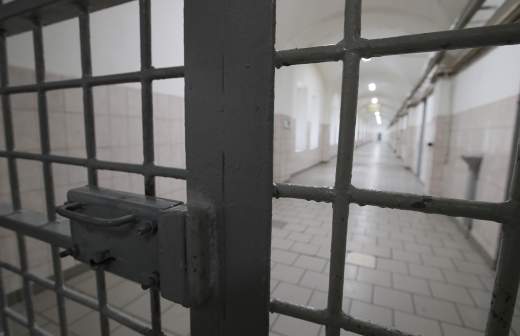In a neighborly way: ethnic gangs from Sweden move to Norway

Sweden is the recognized "flagship" of Northern Europe in rampant crime. Ethnic gangs of Middle Easterners have long been rampant in this country. Recently, they have been actively infiltrating neighboring countries — Norway and Denmark. Nevertheless, the authorities continue to turn a blind eye to the problem, diligently scaring the population with the mythical "Russian threat." The details are in the Izvestia article.
It's not as safe as it used to be.
Until recently, Norway was considered a relatively safe country. In 2021, the crime rate per 100,000 Norwegian residents was 0.54, which was 6.86% less than in 2020. In 2023, 328,800 crimes were registered in this state, the most common of which were theft, robbery, theft and transportation crimes. However, the situation has been rapidly changing for the worse lately.
The other day, the head of the Norwegian National Criminal Investigation Service (Kripos) Christine Quinier appealed to the government with a warning about the growing threat from organized crime. According to Quinier, despite all the efforts of the police, criminal networks in Norway continue to grow and develop. And although 600 million Norwegian kroner (€ 52 million) was allocated in the national budget for combating organized crime in 2024, according to Quinier, this did not bring tangible results. Kristin Quinier seriously fears that organized crime in Norway will grow to such a scale that "it will threaten democracy and the welfare state, and will cause the destabilization of society."
Journalists from the Norwegian broadcasting company NRK have contacted Justice Minister Astri Aas-Hansen for comment. She began to assure the press that everything was not so terrible — sooner or later investments in the fight against crime would have an effect in the long run. However, the minister's words do not sound very convincing. Parliamentary elections will be held in the country this fall, and some of the political parties have tried to exploit the criminal threat.
Thus, the leader of the opposition right-wing Progress Party, Sylvie Listhaug, promised to allocate an additional 1.2 billion Norwegian kroner to fight crime and toughen penalties for juvenile offenders if she came to power. "Juvenile delinquency is growing rapidly across the country. We need more tools for the police, tougher penalties and a new legal framework that will help catch more criminals," said Listhaug. In turn, Peter Froehlich, a representative of the Conservative Party (Høyre), promised to ensure that criminal gangs have their property confiscated more actively and that those involved in recruiting and involving minors in criminal activities are more severely punished.
Such attention paid to juvenile delinquents is not accidental. Recently, criminal gangs operating in Scandinavia have increasingly hired children as killers. Sweden is the "trendsetter" in this case. The Swedish press calls the children who are being hired to commit murder "soldiers." Recently, "soldiers" who have come from Sweden have been increasingly caught in other EU countries. "To be honest, it all came from Sweden," says Andy Kraag, who heads Europol's Center for Combating Serious Crimes and Organized Crime. He compares what is happening to a rapidly spreading forest fire.
Saber Dance
Theodor Smedius of the Swedish National Operational Police Department says that while there used to be only isolated cases where gangs hired teenagers as killers, now there are thousands of them. "This is no longer a local problem. It has become a whole criminal industry," says Smedius. Sweden has proposed the creation of a joint task force within Europol to combat the involvement of teenagers in criminal activities. According to experts, criminal gangs lure youngsters with promises of money and status. The recruitment process is conducted in various applications popular among teenagers, and instruction and management are carried out remotely.
Swedish "soldiers" are attacking Denmark in particular. According to the head of the Danish Ministry of Justice, Peter Hummelgaard, dozens of episodes have been recorded in just a few months when Danish criminals hired young Arabs and Africans who came from Sweden to commit crimes. "Local groups hire Swedish child soldiers to commit crimes. It is deeply disturbing that this could even be the case. And it is deeply disturbing that this is happening in Denmark right now," says Hummelgaard.
Similar complaints are being heard from Norway, where both "soldiers" and adult criminals from Sweden are operating. For example, the Norwegian newspaper Aftenposten writes that there are now more and more criminal elements in this state who have managed to "inherit" in Sweden. "According to our estimates, Swedish criminal networks now pose the greatest threat in the Tromsø police district," said Norwegian Police Inspector Yngve Mirvall. According to him, branches of the Swedish gangs Foxtrot and Gottsunda have appeared in Norway, actively recruiting new young members there. These gangs are engaged in large-scale drug trafficking and various fraudulent operations that bring them large sums.

It's not surprising that bandits are getting crowded in Sweden. There are too many of them there and we have to wage a fierce struggle for a "food base" — using bombs and firearms. "Many gangs multiply like cancer cells. One gang becomes two. Two gangs become three — because they are always feuding and deceiving each other. And people who have nothing to do with their conflicts are dying. It all resembles a low—intensity war," high-ranking Swedish police officer Jale Polarevius complains in an interview with the press. In total, according to police data, there are currently 14,000 active criminal groups in Sweden — but the most powerful of them is the aforementioned Foxtrot, which was put together by a criminal named Rava Majid, also known by the nickname "The Kurdish Fox."
It is noteworthy that recently the activities of the Foxtrot network have attracted attention even in Washington. U.S. Secretary of State Marco Rubio emphasized in a statement that Foxtrot is involved in arms smuggling and contributes to the growth of violent crimes throughout Northern Europe. According to him, Foxtrot members are responsible for numerous shootings, contract killings and attacks. For this reason, the US authorities have imposed sanctions on Foxtrot. This means that all property and financial assets belonging to Rava Majid and his associates are blocked in the United States. And if they come to the United States on their own, they will be arrested. The purpose of the sanctions is to make it difficult for the criminal network to operate and limit its ability to operate internationally. By the way, Foxtrot initially attracted the attention of the United States due to the fact that it was suspected of organizing last year's terrorist attacks on the Israeli embassy in Stockholm.
Foxtrot's entry into Norway was widely discussed after a powerful explosion occurred on a street in the local town of Drebak in October last year, near one of the private houses. Fortunately, no one was injured, but the police suspected that it was an attempted murder. Experts noted that this is a typical "Swedish handwriting" — it is the members of Swedish criminal gangs who have recently become accustomed to blowing up competitors in the criminal business right in their homes. These suspicions were confirmed during the investigation — it turned out that the explosion was caused by members of Foxtrot. And since then, the members of this network have given the Norwegians many new reasons to remember them with an unkind word.
To distract attention
The Swedish "donation" has led to the fact that the population permanently residing in Norway has become more involved in illegal activities. Teenagers turned out to be particularly susceptible — according to police data, in 2024, compared with 2023, the number of underage robbers in Oslo doubled. Meanwhile, in 2023, 21,800 juvenile criminal offenses were initiated in Norway, which is 28% more than in 2022. Ghulam Abbas, a former member of a youth gang and now a social worker in the Norwegian capital, says in defense of the young tribesmen that "many of them come from war-torn countries."
There is one absolutely politically incorrect topic, too much discussion of which in Sweden and Norway can lead to accusations of "racism." However, it is difficult to argue with the facts — the most fertile ground for crime occurs where there are many migrants. "There are objective reasons for this — migrants often come from war-torn countries, which means they already have a habit of violence. In addition, they do not have many prospects in Scandinavia - relatively few people manage to successfully integrate into a culturally completely alien society, make a good career in it, and achieve prestigious jobs with high salaries. That's how promising cadres for street gangs grow up," political analyst Maxim Reva explains in a conversation with Izvestia. He recalls that in Norway, the proportion of migrants in the population is already over 25% of the population, in Sweden — more than 20%.
At the same time, both in Sweden and Norway, the authorities impose a completely different "threat" on the population — local politicians and the press talk day and night about "aggressive Russia", which is capable of attacking at any moment. Not a day goes by without more stories about the need to confront Moscow. From the latest: Norwegian Foreign Minister Espen Barth Eide said that the North Atlantic Alliance should strengthen its presence in the Arctic to counter Russia. Eide sees the Arctic as a key front in a potential conflict between East and West. The Minister calls for an increase in the number of military exercises, exploration activities and satellite communications facilities in the region. In turn, Norwegian Prime Minister Jonas Gahr Stere recently announced that from now on his state is abandoning restraint in terms of military activities near the Russian borders.
Since the 50s of the last century, Norway has imposed restrictions on conducting military activities in the areas bordering Russia on its own initiative — and now it is moving away from them. According to Stere, this will concern operations in the air, the entry of NATO warships into Norwegian ports and the presence of military forces on land. Gare Stere emphasizes that "Norway freely decides which maneuvers to carry out on its own territory." He recalled that Sweden and Finland have also been members of the North Atlantic Alliance since recent times, which means that new NATO territories need to be developed. "This does not change the relations between Norway and Russia. Norway is a responsible actor in the North. We are conducting responsible military exercises under our auspices and together with our allies," Stere said rather hypocritically.
Natalia Eremina, Doctor of Political Sciences, Professor at St. Petersburg State University, in an interview with Izvestia noted that although Norway is not a member of the European Union, it has also become a victim of the migration crisis that has befallen the EU. "The number of the indigenous population of the Scandinavian countries is relatively small, and the migrants arriving there in huge numbers have a huge impact on the societies of these countries. People from Syria, Iraq, Pakistan, and Eritrea in most cases have neither education nor qualifications, and in fact do not know how to do anything, and they "go to success" based on their cultural norms, which are often quite medieval. However, it is difficult for native Norwegians to assess the degree of risks, because the government is constantly trying to shift their attention to the "Russian threat." Although Russia does not create any migration burden on Norway and does not threaten its security in any way," Eremina sums up.
Переведено сервисом «Яндекс Переводчик»






